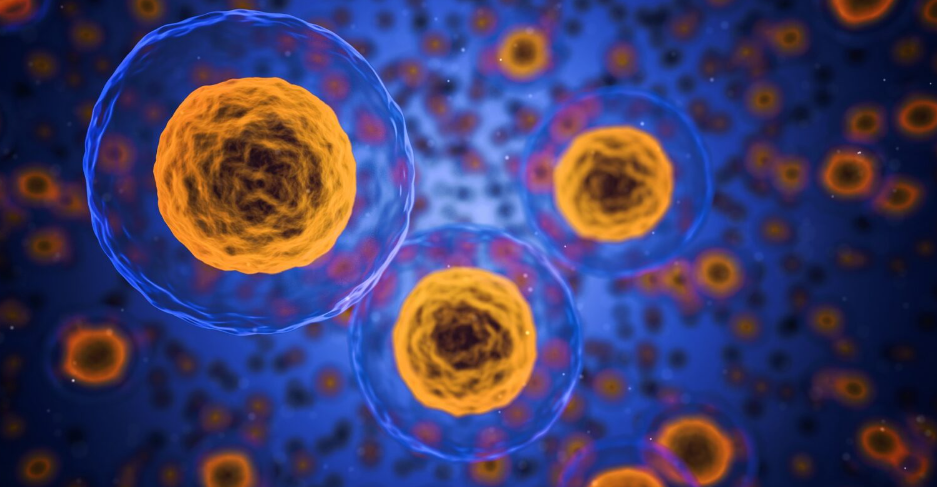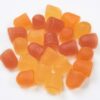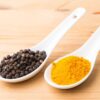Curcumin for Cancer: The Spice in your rack has Anti-cancer Effects
- Posted on
 Taiba Tariq
Taiba Tariq- Categories: Turmeric Nutrition

CURCUMIN FOR CANCER
Keep in mind; our chances of getting cancer in life are never fully eradicated. However, Mother Nature has blessed us with turmeric. Turmeric is a yearly plant native to Southeast Asia, China, and India. The plant has large, elliptical leaves and yellow funnel-shaped flowers. Beneath the plant, a dense yellowish-orange rhizome is present. When the rhizome is dried and powdered, the beautiful golden spice turmeric is reaped. Cooks use this coveted spice worldwide to add a warm taste and color to foods. Turmeric has also been used for centuries in Ayurvedic and Chinese medicines to treat inflammation and cure infections.
Curcumin is the bright orange pigment derived from turmeric (curcuminoids). Curcumin for cancer has displayed incredible anti-cancer benefits. In countries where people eat turmeric daily, research has shown lower rates of certain types of cancer. Gulping about 100 to 200 mg daily over long periods seems to work best in most cases. The clinical studies on curcumin consumption combined with chemotherapy drugs revealed that curcumin increases the efficacy of chemotherapy and radiotherapy, which results in improving patient survival duration and extending anti-metastatic proteins along with negating their side effects. (R)
BUT CAN CURCUMIN HELP WITH CANCER?
In a series of different tumors, Curcumin has been shown to inhibit initiation, progression, and metastasis. These anti-cancer effects are primarily achieved by the inhibition of different transcription factors, growth factors, inflammatory cytokines, protein kinases, and other oncogenic molecules. It stops cancer cells from growing and dividing by stopping them at different stages or causing them to die. This article discusses how curcumin helps fight different types of cancers by targeting different molecules in the body.
Some studies present that curcumin in turmeric can fight cancer cells. A few studies have located it could work against lung, breast, and prostate cancers. Some suggest that curcumin may help chemotherapy function sufficiently.
An analysis of people with colorectal cancer saw it might administer slow the disease’s progression. Another found that taking curcumin for cancer daily may reduce the likelihood of cancer in people with an elevated risk of it.
But most proof about curcumin for cancer arrives from studies on animals or cells in the lab. With those investigations, it’s indefinite what these studies indicate for people with cancer or trying to avoid getting it.
WHAT DO CLINICAL STUDIES AND RESEARCH SAY?
Still, the colorectal cancer study showed some possible uses that deserve further investigation. Initial spotting showed that curcumin could help a lower range of protein that is crucial in prostate cancer. Likewise, results aren’t available for the pancreatic cancer study. However, a highly bioavailable form of curcumin, called Theracurmin, was created to handle pancreatic cancer. Comparatively, one study saw that oral use of curcumin might help with mouth sores, which are common in people with radiotherapy for head and neck cancers. Whereas another found consuming turmeric didn’t help with skin allergies and pain in people experiencing radiation for breast cancer.
The antioxidant content of curcumin may reduce inflammation in your body. Note that inflammation triggers the growth of cancer. No sufficient evidence to say that curcumin prevents or cures cancer. Only a part of some research is promising in this case.
A 2010 study revealed that cancer cells are slightly curcumin-resistant. Curcumin targets just cancer cells, allowing healthy cells to remain untouched. A potential therapy step is chemotherapy drugs killing both healthy and cancer cells.
The widely known supplement is there to provide higher curcumin content to people with cancer without excessive damage. More examination is required on cancer patients to decide Theracurmin’s efficacy.
CURCUMIN SAFETY AND RISK
Consider using turmeric for its benefits. Use it in cooking or take it in supplement form. Turmeric is available as tea, capsules, or milk. It can interact with certain medications, and cancer patients undergoing chemotherapy should consult their doctor beforehand. Turmeric can lower blood sugar and enhance the effects of blood thinners. Turmeric may cause ulcers and kidney stones with prolonged use. Use turmeric or curcumin products with black pepper or piperine listed. Most tolerate them well.
__________________________________________________________________________________________
SOURCES
Unlu A, Nayir E, Dogukan Kalenderoglu M, Kirca O, Ozdogan M. Curcumin (Turmeric) and cancer. https://pubmed.ncbi.nlm.nih.gov/27837604/ J BUON. 2016 Sept-Oct;21(5):1050-1060. PMID: 27837604.
Abadi AJ, Mirzaei S, Mahabady MK, Hashemi F, Zabolian A, Hashemi F, Raee P, Aghamiri S, Ashrafizadeh M, Aref AR, Hamblin MR, Hushmandi K, Zarrabi A, Sethi G. Curcumin and its derivatives in cancer therapy: Potentiating antitumor activity of cisplatin and reducing side effects. https://pubmed.ncbi.nlm.nih.gov/34697839/ Phytother Res. 2022 Jan;36(1):189-213. doi: 10.1002/ptr.7305. Epub 2021 Oct 25. PMID: 34697839.
Hamzehzadeh L, Atkin SL, Majeed M, Butler AE, Sahebkar A. The versatile role of curcumin in cancer prevention and treatment: A focus on PI3K/AKT pathway. https://pubmed.ncbi.nlm.nih.gov/29693253/ J Cell Physiol. 2018 Oct;233(10):6530-6537. doi: 10.1002/jcp.26620. Epub 2018 Apr 25. PMID: 29693253.
Mansouri K, Rasoulpoor S, Daneshkhah A, Abolfathi S, Salari N, Mohammadi M, Rasoulpoor S, Shabani S. Clinical effects of curcumin in enhancing cancer therapy: A systematic review.https://www.ncbi.nlm.nih.gov/pmc/articles/PMC7446227/ BMC Cancer. 2020 Aug 24;20(1):791. doi: 10.1186/s12885-020-07256-8. PMID: 32838749; PMCID: PMC7446227.
Zoi V, Galani V, Lianos GD, Voulgaris S, Kyritsis AP, Alexiou GA. The Role of Curcumin in Cancer Treatment.https://pubmed.ncbi.nlm.nih.gov/34572272/ Biomedicines. 2021 Aug 26;9(9):1086. doi: 10.3390/biomedicines9091086. PMID: 34572272; PMCID: PMC8464730.
Giordano A, Tommonaro G. Curcumin and Cancer. https://pubmed.ncbi.nlm.nih.gov/31590362/ Nutrients. 2019 Oct 5;11(10):2376. doi: 10.3390/nu11102376. PMID: 31590362; PMCID: PMC6835707.
Shanmugam MK, Rane G, Kanchi MM, Arfuso F, Chinnathambi A, Zayed ME, Alharbi SA, Tan BK, Kumar AP, Sethi G. The multifaceted role of curcumin in cancer prevention and treatment. Molecules.https://pubmed.ncbi.nlm.nih.gov/25665066/ 2015 Feb 5;20(2):2728-69. doi: 10.3390/molecules20022728. PMID: 25665066; PMCID: PMC6272781.
Taiba Tariq
Taiba Tariq is a healthcare nutrition hobbyist, enthusiastic about researching healthcare & skincare news while analyzing the latest and science-backed evidence about nutrition, skin care, and supplements. She wants to help people regain their beauty, health, and well-being through natural means.
all author posts




